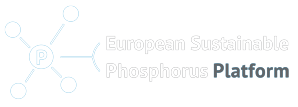The previous European Commissioner for Science and Research and then for the Environment,
Janez Potočnik, has joined the Board of the European Sustainable Phosphorus Platform
(ESPP). Mr Potočnik has also previously been a Minister in Slovenia, and is currently Co-Chair of
UNEP International Resource Panel. He will act as an ambassador for sustainable phosphorus
resource management, particularly to national and regional governments, and to the food
industry.
ESPP’s General Assembly (1/12/2016, Brussels) elected the following Board:
• President: Ludwig Hermann (Outotec, a global leader in minerals and metals processing technology)
• Treasurer: Bengt Hansen (Kemira, a water treatment chemicals company)
• Secretary : Anders Nättorp (FHNW University of Applied Sciences Northwestern Switzerland)
• Herman Walthaus (Netherlands Government)
• Christian Kabbe (DPP German Phosphorus Platform)
• Fertilizers Europe, the European fertiliser industry federation
• Janez Potočnik (proposed by BSAG Baltic Sea Action Group)
The General Assembly fixed the following priority actions for the Platform for 2017
- The revision of the EU Fertilisers Regulation, to cover recycled nutrient products, in
particular adding struvite, biochars and ash-based products (currently not covered) and
enabling traceability to ensure safety and confidence in recycled products susceptible to
contain organic contaminants
- Refining justification for maintaining phosphorus / phosphate rock in the EU Critical Raw
Materials list
- Developing standards for secondary nutrient raw materials, to accompany recycling
- Sustainable manure management across Europe
Innovation in the chemicals industry
The 2016 General Assembly was followed by a thematic meeting looking at innovation and
sustainability in industrial uses of phosphorus. Sixty participants, mainly from industry, but also
from R&D and the European Commission, explored the wide range of industries in which
phosphorus chemicals are essential, including fire safety, energy storage, electronics, medical
applications, catalysts and lubricants. A number of companies, including Clariant, ICL, Magpie
Polymers, Italmatch, Prayon, ProPHOS and Remondis, presented their actions to make
phosphorus chemistry processes more sustainable.
Success stories presented include recycling of phosphorus (from sewage sludge, from spent
fire extinguishers), and the development of phosphorus chemicals with improved health, safety
and sustainability profiles.
Summary is online in SCOPE Newsletter n° 123 and slides at:
http://www.phosphorusplatform.eu/P-in-industry
